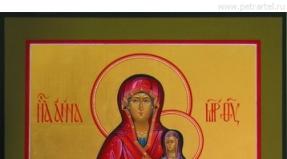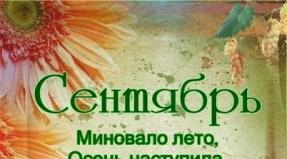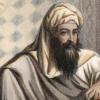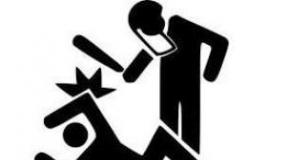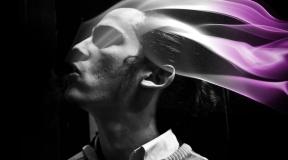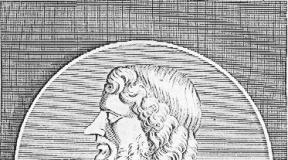Philosophy. Philosophical works
Philosophy has been of interest to people since the time when people first began to think about the issues of life and death. And over the millennia, mankind has become more and more aware of the problems of the universe, giving the world a lot of literary creations.
There are many better philosophical books to read. They help the reader understand the philosophy of different times, and therefore deepen knowledge in general. Some of the creations express this science through an artistic plot, while others through the author's thoughts.
Bhagavad Gita
This ancient Indian creation, which is based on the "Bhagavad Gita" ("Song of the Lord") greatly influenced the formation of the Hindu religion. Originally written in Sanskrit, the exact date of creation is still unknown. It is assumed that this was sometime in the first millennium BC. e.
This Upanishad (ancient Indian treatises) contains 18 chapters and about 700 verses that touch upon the questions of being, the laws of life and nature, it tells about God, about human spirituality and much more. There is everything here, from everyday everyday wisdom to philosophy about the meaning of life.
Aristotle "Nicomachean Ethics"
Aristotle was the ancient scientist of Ancient Greece, who also made a significant contribution to the development and study of ethics as a science. He distinguished various philosophical categories, deduced the idea of \u200b\u200bthe soul, and much more. Nicomachean Ethics is one of his most famous works, written about 300 BC. e.

Lao Tzu "Tao de Jing"
And here we will talk about the philosophy of Ancient China. Lao Tzu is an ancient Chinese great philosopher who is considered the founder of Taoism. He lived in the Zhou era in the 6th-5th centuries. century BC e. It is he who is credited with the authorship of "Tao de Ching", in which the author talks about the path of Tao. This book has influenced all subsequent generations of Chinese people and the general worldview. Tao is not a religion, but a philosophy of life.
John Milton "Paradise Lost"
This poem was published in 1667. In it, the author tells about Adam (the first man), there is a story about hell, heaven, god, evil and good. This book is cult to this day.
Benedict Spinoza "Ethics"
Immanuel Kant "Critique of Pure Reason"
The author studied philosophy for a very long time before creating one of the most important works of his life, published in 1781. The Critique of Pure Reason focuses precisely on reason. Kant explores the cognitive ability of the brain, touches upon issues of space and time, reflects on God and much more.

Arthur Schopenhauer "The World as Will and Representation"
He put forward his theory, called palingenesis, analyzed human will, and also denied reincarnation and had a great influence on subsequent philosophers and not only. Arthur himself with his philosophy is called "the philosopher of pessimism."
Friedrich Nietzsche "Thus Spoke Zarathustra"
Nietzsche had many more philosophical works. For example, "Beyond Good and Evil."
Roman Chernyshevsky "What is to be done?"
Instead of a conclusion
We have listed just a few of the best philosophical books, but there are a large number of them. It is by them that one can study the whole philosophy of all times and peoples, it is thanks to works, treatises and novels, artistic and non-artistic, that one can understand how this science has always evolved, supplemented and developed; how humanity itself has changed and its relationship to God and many other philosophical topics.
philosophical theory of literature. There are three main options: firstly, the inclusion of literature as an equal component in the context of the philosophy of a particular thinker, secondly, a comparison of philosophy and literature as two autonomous practices in order to discover their similarities and differences, and thirdly, attempts to find philosophical problems in literary texts proper (relatively speaking, according to L. Mackey's typology, literature - philosophy, literature and philosophy, philosophy - literature).
In contrast to the theory of literature, which is being developed by experts as a conceptual basis for literary criticism, F. l. practiced by philosophers interested in placing literature in the context of their own philosophical system. So, in Plato's dialogues, poetry is considered along with the metaphysical, epistemological and ethical-political views of the philosopher. Aristotle's Poetics, the earliest example of Western literary theory, is also an attempt to use the experience of Greek poets and playwrights in the philosophical system of the thinker. If Aristotle's Poetics as a philosophical and literary work is the basis of classical poetics, then the basis of romantic poetics is ST Coleridge's Literary Biography, whose philosophy of literature was devoted to both the justification of the universality of poetry and metaphysics, which corresponded to this work. Attempts to include literature in philosophical constructions were undertaken by D. Hume and A. Schopenhauer, M. Heidegger and J.P. Sartre. To a large extent, these tendencies were due to the desire of thinkers to prove the possibility of various ways of existence of meaning. German romantics (F. Schlegel, Novalis) considered literature, like other arts, to be the cornerstone of philosophy itself: "Philosophy is the theory of poetry. It shows us what poetry is - poetry is everything and everything" (Novalis). The literary theory of romantics, based on German transcendental idealism, gravitated towards explaining the world by means of artistic creation: "an extensive and versatile range of problems, representing the literary theory of romanticism, is largely directed towards the philosophical sphere, which is especially characteristic of German romanticism." (A. Dmitriev). Subsequently, the "romantic" line of philosophizing was developed in the philosophy of life, phenomenology, existentialism - philosophical schools concerned with the growth of the partialness of human existence due to the dominance of rationalistic ideas in culture, cultivated by traditional metaphysics and striving for the immediacy of contemplation of the depth of reality.
The second variant of understanding F. l. presupposes an attitude to philosophy and literature as to two different and autonomous spheres of activity, which are with each other in one way or another. In this version, F. l. tries to identify, first of all, the moments that distinguish philosophy from literature and to clarify their relationship. Both differ in their subject matter (the first deals with objective structures, the second with subjectivity), in methods (rational in the first case; associated with imagination, inspiration and the unconscious in the second), in results (the first creates knowledge, the second - emotional impact). Then the relations of these spheres of activity are considered as developing in those areas where the differences between them are surmountable. For example, although their objects are different, the results can be similar: both of them determine understanding (the first - facts, the second - feelings). Or: although their methods are different, they may approach the same subject from different angles. Reasoning of a similar plan was developed by Thomas Aquinas, believing that philosophy and poetry can deal with the same objects, only one communicates the truth about objects in the form of syllogism, the other inspires feelings about them through the language of images. According to M. Heidegger, the philosopher explores the meaning of being, while the poet touches the sacred, but their tasks coincide at a deep level of thinking: "art - poetry belongs to it, too - the sister of philosophy," poetry and thought "belong together," "poetry and thought ... are entrusted to the mystery of the word, as the most worthy of their comprehension and thus are always related to each other. " At the same time, Heidegger's understanding of the relationship between philosophy and poetry was associated with the desire of the thinker to resist the objectifying power of language, including the philosophical one, to find means for thinking immersed in existence, to find a new language close to the “mimetic-expressive possibilities of reality itself” (L. Moreva ), contributing to the fulfillment of the truth of being as "unconcealment".
For J. P. Sartre, literature is an engaged philosophy, an existential political activity, which is "in the service of freedom." The case of a French existentialist's attitude to literature and his active appeal to it in his work is interesting for the combination of various artistic means, which the thinker uses to demonstrate the inauthenticity of human existence, the images he draws, as if intended to "personify" the philosophical needs of the author. It turns out that in itself an active appeal to literature is not a guarantee that the result obtained will be artistically full.
The third meaning of F. l. - attempts to discover in literary texts philosophical problems and points of value to philosophers. In this case, the philosopher seeks to investigate and evaluate the content of literary texts expressing certain philosophical ideas and discussing philosophical problems, for example, the discussion of the problem of free will and theodicy in Dostoevsky's The Brothers Karamazov. In a similar vein, F.L.'s courses are read. at US universities. Examples of this kind of research are the composition "Three Philosophical Poets" by J. Santayana (1910), the works of S. Kavell, dedicated to Emerson and Thoreau, "The Cognition of Love" by M. Nasbaum (1989). The attention of American researchers to philosophy in literature is not accidental. By remark? S. Yulina, in Europe there is an image of American philosophy as something "empirical" and "scientistic". This is far from the case. The creators of the American tradition - Jonathan Edward, Ralph Emerson, Walt Whitman, William James - were more likely philosophical poets who painted the world aesthetically and offered a variety of poetically metaphorical pictures of reality.Alfred Whitehead, who moved to America, adopted and developed the tradition of aesthetic pluralism. And John Dewey in his mature and heartfelt work "Art as Experience" followed this path. If the cultivation of "poetic philosophy" was characteristic of American thinkers of the first half of the 20th century, modern authors (A MacIntyre, Ch. Taylor, M. Nasbaum) pin their hopes on literature in terms of clarifying and expressing the complexities of the spiritual search for an individual in the process of acquiring self-identity. Thus, the American ethicist and philosopher of literature M. Nasbaum shows, in addition to the one mentioned, in his works such as "The fragility of the good: fate and ethics in Greek tragedy and philosophy" (1986), "Desire therapy: theory and practice in Hellenistic ethics" ( 1994) that philosophical discourse should be enriched and expanded through the use of novels, drama and poetry in it. In particular, narrative expresses the complexities of moral life more fruitfully than abstract ethical theorizing of philosophy. In "Cognition of Love", the thinker deeply reflects: "When we examine our life, so many things prevent us from correcting our vision, there are many motives to remain blind and stupid. Among us and in our lively perception of the concrete, the" vulgar heat "of jealousy and personal interest are not uncommon. , simply because this is not our life, puts us in a more advantageous position. sp. perception of a moral stance and shows us what it would be like to take that stance in life. We find here love without possessiveness, attention without attachment, engagement without panic. "
These views are not simply criticisms of a particular philosophical style, but are deep criticisms of the moral fundamentalism of Plato and Kant. In The Fragility of Good, exploring moral fate (luck) as reflected in the writings of Aristotle, Plato, and in Greek tragedy, Nasbaum shows that the contingencies of human life make some good things “fragile,” like love, but they are not made less valuable to human prosperity. Recognizing and recognizing this value presupposes the concept of practical reason, which includes, along with intelligence, feelings and imagination. According to Nasbaum, this approach best embodies storytelling, as it captures the peculiarity and contingency of human action and reveals the contextual richness of moral thinking (in Sophocles' Antigone alone, the theorist has over fifty different references to thinking). P. Ricoeur, a thinker who also widely uses literature in his writings, following Nasbaum, notes that the call to "think correctly" and "think correctly" contained in Greek tragedies does not at all mean that in them we find an equivalent of moral teaching. Tragedy, in his opinion, creates an ethical and practical aporia, in other words, a gap is created between tragic wisdom and practical wisdom. Refusing to give a resolution to the conflict in accordance with the latter, tragedy encourages a practically oriented person at his own risk and fear to reorient his action in accordance with the wisdom of the tragic.
At the same time, this kind of philosophical-literary approach implicitly proceeds from the premise that literature and philosophy are only different forms of the same content: what philosophy expresses in the form of arguments, literature expresses in a lyrical, dramatic or narrative form. The attitude of a philosopher to literature is accompanied by the conviction that he, by virtue of only belonging to the philosophical workshop, has the right to identify and clarify the subject to which philosophical and literary texts are devoted, and that the language of philosophy gives an optimal expression to the content that is (less adequately) expressed in the language literature. The model for this approach is Hegel's Phenomenology of Spirit, in which art, along with religion, is understood as imperfect sketches of truth, which only dialectical concepts are capable of expressing with maximum completeness and properly.
Dissatisfaction with this approach (the implicit preference of philosophy over literature) led to a fundamentally different understanding of the connection between them, and on its basis - to a different concept of F.L. with Hegel and his, as they say today, "philosophical imperialism." This strategy was taken up by F. Nietzsche, who brought the history of truth closer to the history of literary fiction and reflected on the ability of art to comprehend truth. The tendency of "aestheticization of reason" in European philosophy of the late XIX - XX centuries. (T. Adorno, G. Bachelyar, V. Benjamin, P. Valerie, G. G. Gadamer, M. Heideggter) was accompanied by the awareness of the autonomy of the functioning of the "artistic" in general and, in particular, literature, as well as the fact that the artistic content cannot be transformed without loss of meaning into propositional structures, into well-defined formulas. This tendency received further radical development in the works of J. Derrida and his followers, who believe that the consideration of philosophy and literature as alternative expressions of identical content is a serious mistake, just as it will be a mistake to treat philosophy as the dominant discourse, the "proper" expression of content. "insufficiently accurate" expressed in the literature. According to this position, all texts have a "literary" form, therefore the texts of philosophers are no worse or better than the texts of novelists and poets, and their content is internally determined by the means of its expression. Therefore, "literature in philosophy" is no less than "philosophy in literature." Scrupulously analyzing the philosophical text and the linguistic means by which it is created, Derrida demonstrates the multilevel nature of his "linguistic empiricism", as a result of which thought can die under the pressure of universally significant words-labels, but it can also free itself from the "tyranny of someone else's writing" Understanding the "literary" of philosophical texts their rhetorical structure, the system of tropes and figures that, in fact, determine the functioning of philosophical argumentation, Derrida demonstrates how thought is destroyed in the self-confident monologism of "logocentric" metaphysics. "Literary" is linked by the thinker with the objectifying tendencies of Western rationality and manifests itself, from his so-called, in the text, first of all, in the fact that it gravitates towards "removal", "smoothing", "completion", "design" of the letter, that is, . encroaches on the spontaneity of philosophical speech. In turn, the possibility of philosophy as a "speech" of thought, as a "prototype" is substantiated with the help of "a philosophical and fictional argument in favor of the unity and relationship of philosophy and art, philosophy and literature, the unity of forms of self-realization of creative rationality in all possible spheres of human activity" ( N. S. Avtonomova).
Accordingly, the philosopher of literature no longer has the right to simply separate the philosophical content from the literary form. Rather, the types of literary expression in themselves present the philosopher with the need to revise the foundations of his own cause. "The confusion of philosophers before the truth value of fictitious statements is an example of the type of problems that the study of literature can create for philosophical experience" (R. Rorty. Consequences of Pragmatism, 1982). For example, literary mimesis (especially in the works of postmodern authors) raises questions about the possibility and supposed normativity of the representation of facts and threatens to undermine the traditional hierarchy of values, in which “fact” is higher than fiction.
Believing that philosophy does not have its own subject, that its claims to reflect reality are unfounded, the famous representative of American pragmatism R. Rorty is convinced that literature helps to free philosophy from this delusion, from groundless claims to specific knowledge. Self-awareness of philosophy as a "literary genre" will free it from outdated canons, imposed traditions and will contribute to the "interested conversation" of researchers, strengthening their community and bringing them closer to the needs of the majority. Opposing literature to traditional metaphysics, the thinker believes that the former is more effective in two respects: in achieving "solidarity," that is, literature, exposing the shortcomings of traditional society, contributes to the implementation of various kinds of reforms, primarily moral ones; and in achieving "private autonomy" of the individual, in setting the space within which the individual is free to satisfy his desires and fantasies, including those unsanctioned by society. In keeping with these functions of literature, Rorty, in Random, Irony, and Solidarity (1989), suggests a distinction between "books that help you be less violent" and "books that help you become autonomous." Among the former, Rorty, in turn, singles out "those that help us see the impact of social practices and institutions on others" and "those that help us see the impact on our other private idiosyncrasies." In the analysis by the thinker of the work of a number of writers (Dickens, Dreiser, Orwell and Nabokov in "Chance ...", Dickens and Kundera in "Essays on Heidegger and Others"), the overtones of approval of the social usefulness of literature, criticism of social injustice, are well known to the Russian reader. promoting the search for a just social order.
The merit of R. Rorty, H. Arendt, P. Ricoeur, H. White, A. McIntyre, M. Nasbaum, as well as the heremeneutic tradition, was, from our point of view, drawing attention to the moment of "narratology" (see " Narratology "," Narrative "), which unites philosophy and literature. Although a special, "narrative" type of rationality, highlighted by the cogitologist J. Bruner, along with the traditional formal-logical type, is not contained in all philosophical texts, nevertheless, many models of understanding that are involved in philosophy are "literary" in the sense that that are close to how the narratives are understood. According to the just remark of H. Arendt, “although we know much less about Socrates, who did not write a single line and did not leave behind a single work, than about Plato or Aristotle, we know better and more intimately who Socrates was, because we we know his history than we know about who Aristotle was, although we are much better informed about his opinions. " In other words, in order to understand what wisdom means, we tell the story of Socrates.
The self-reflectiveness of modern literary texts leads philosophers to a critical understanding of professional paradigms, and, in the case when literature is not viewed only as another, attractive, but inevitably superficial source of philosophical ideas, it poses serious epistemological, metaphysical and methodological problems for philosophy.
Excellent definition
Incomplete definition ↓
11/3/2017 at 10:48 PM · Pavlofox · 46 470
Top 10 Best Books on Philosophy
The best books on philosophy have absorbed all the wisdom of the ages that great thinkers managed to put on paper. They teach a person to be wise, make him think in a completely different way, and illuminate issues that have been hidden behind a veil of secrecy for several centuries. The world library contains many philosophical works that are the real heritage of all mankind. The list below contains only the smallest part of the best works of the great thinkers of all time.
10. Words and Things | Michel Foucault
(Michel Foucault) opens the list of the best books on philosophy. This is the only work of the philosopher to date that is available in Russian. One of the most controversial and complex creative works of Foucault, where the thinker examines the shift in the history of Western knowledge. The question is considered that in the Western culture of the 19th century a certain form of thinking arose, which is characteristic of the humanities. The writer separately distinguishes three different configurations of knowledge - the Renaissance, classical and modern.
9. Creative evolution | Henri Bergson

"Creative evolution" (Henri Bergson) is one of the best philosophical works. We can safely say that this book concentrates not only the views of the thinker himself, but also represents the idea of \u200b\u200ba whole philosophical trend. One of the key works of the French philosopher claims to be a treatise on the philosophy of evolution. According to the thinker himself, evolution gives the realization that matter is "rather a flow than a thing", and the engine of evolution is "vital impulse". The book contains a large number of phrases that have become "winged" and become aphorisms.
8. Free Will | Sam Harris

(Sam Harris) - one of the best philosophical works of the great thinker. This book, which highlights such questions as: does a person actually have free will and whether he bears undeniable responsibility for his actions. Harris suggests that, nevertheless, human actions are largely determined by genes, and not society or upbringing. People who consider themselves and others to be individuals are convinced that they have freedom of choice. However, the author of the book debunks this belief in his philosophical work. He argues step by step that, in principle, free will does not exist.
7. Second floor | Simon de Beauvoir

(Simone de Beauvoir) is rightfully included in the top ten books on philosophy. One of the most famous works of the great thinker of the second half of the 20th century tells about the attitude towards women throughout the entire existence of mankind. This book with a feminist bias, therefore, will be of interest primarily to women. It took de Borvoir about one and a half years to write the work. The resulting two-volume edition was included by the Vaticon in the list of books prohibited from reading. The first volume was titled "Facts and Myths", the second - "The Life of a Woman". This philosophical work is primarily about the difficult fate of women throughout the history of mankind.
6. Life of the Mind | Hannah Arendt

(Hannah Arendt) is one of the best works of the German-American philosopher with Jewish roots. This is the last and most significant work of the great thinker of the 20th century. In this book, Arendt conducts her own research into the meaning of the word. The philosopher was able to complete only the first two volumes under the titles "Thinking" and "Volition". The third volume, entitled “Judgments,” was never destined to appear, since Hannah Arendt was overtaken by death. One of the most significant political and intellectual figures made a great contribution to philosophy.
5. Language, Truth and Logic | A. J. Iyer

(A. J. Ayer) - one of the best philosophical works of our time. The book is one of the most published on analytical philosophy. The book is the source of a turn in linguistics, which in turn, to some extent, changed the image of philosophy of the 20th century. Thus, "Language, Truth and Logic" serves to form the image of philosophy not only in the eyes of professional philosophers, but also among ordinary people. This work is especially popular in England, where more than one million copies have been released to date.
4. Being and Time | Martin Heidegger

(Martin Heidegger) - one of the best books on philosophy, which has determined a whole direction in the science of all sciences. The main topics of scientific work are loneliness, a sense of abandonment and death. The book traces echoes of the works of such prominent postmodern writers as Sartre and Camus. In this work, Martin Heidegger created his own style of language, in which he expresses his thoughts in a very complex form. "Being and Time" is a difficult book to comprehend, requiring deep thoughtfulness, not everyone can understand it.
3. About responsibilities | Cicero

Philosophical Work (Cicero) opens the top three books on philosophy. In this total work done by Cicero, many political and legal problems are highlighted. His worldview in this book was greatly influenced by the works of thinkers such as Aristotle and Plato. The state for Cicero is nothing more than the common property of the people. According to the thinker, the main reason for the emergence of the state is the need to exist in a team. The duties of every person who is a citizen of the state, according to Cicero, are justice, decency and greatness of spirit. Justice in the understanding of Cicero is not to harm the people around you.
2. Nicomachean Ethics | Aristotle

(Aristotle) \u200b\u200bis one of the best philosophical works of ancient thinkers. This is one of the three ethical writings of Aristotle. The work highlights such topics as the highest good, happiness, virtue. According to the philosopher, true goodness and happiness lies in the virtues that he teaches in his work. The thinker's voluminous work includes nine books in total.
1. Conversations and Judgments | Confucius

"(Confucius) rounds off the list of the best books on philosophy. One of the most prominent thinkers in history, he had a great influence on philosophy. His dialogues, notes and aphorisms were written down by his students, after which they were published under the name Lun-yu, which in translation means "Thoughts and judgments." For many centuries this treatise was considered obligatory for memorization in many higher educational institutions of the world. The book was translated into Russian only at the beginning of the 20th century. The main themes of the book are mercy, justice and common sense.
What else to see:


Philosophy is a delicate matter. Present to your attention 10 world famous and recognized philosophical books.

As the essence of all Vedic wisdom, it is a complete and complete work that reveals the secrets of life, the laws of nature, the relationship between God and a living being. "Bhagavad Gita" - was the reference book of such great people as Leo Tolstoy, Einstein, Mahatma Gandhi. The value of the Gita lies in its exceptional ability to influence the spiritual development of a person, which manifests itself in ethical, social and psychological aspects. By solving the problem "Who am I?" The Gita gives the correct answer to the question "What to do?" and opens up ways to achieve a special inner state, in which one can not only comprehend enduring spiritual values, but also put them into practice. The Gita provides a solution to the problems of the meaning of human existence, the clash of personal and universal ideas about morality. The teaching of the Gita touches upon the most diverse aspects of life, from the mundane, everyday, and to the metaphysical, spiritual. You read this amazing book and your lungs are filled with the air of eternity and immortality.
2. John Milton - Paradise Lost
John Milton (1608-1676). one of the greatest poets of England. Milton's poetry has always been distinguished by sublimity, its majestic beauty, appreciated by such poets as Pushkin, Byron, Goethe, cannot leave indifferent the modern reader, despite the fact that we are separated by time, and the difference of cultures, and different artistic concepts and tastes. Three poems included in this collection. “Paradise Lost”, “Paradise Returned” and “Samson the Fighter” - were the final ones for Milton, they were written at the end of his life, after a long break in creativity.
3. Fyodor Dostoevsky - "Notes from the Underground"
Fyodor Dostoevsky - "Notes from the Underground"
"Notes from the Underground" - Dostoevsky's overture to his five books; in the story the great insights of the artist-thinker found their expression; here for the first time in Russian literature the foundations of the philosophy of existentialism are formulated. "Notes from the Underground" is a story of precisely posed questions and precisely found intonations. Pain pervades the hero's word, it beats in the rapid changes in his moods, in endless worries, in painful experiences and in insoluble dead ends.
4. Elias Canetti - "Mass and Power"
Elias Canetti - "Mass and Power"
A monumental work that Elias Canetti wrote for about twenty years. It is difficult to say how scientific this text is, despite the multiple citations of ethnographers, sociologists and psychiatrists. Rather, it is an immanent research based on creative epiphanies.
A very simple (in terms of understanding) and themes and a wonderful book that allows you to understand how people manipulate each other and something about themselves.
5. Stendhal - "Parma Abode"
Stendhal - "Parma Abode"
The Parma Convent, a novel written by Stendhal in just 52 days, has received worldwide recognition. The dynamism of the action, the intriguing course of events, the dramatic denouement combined with the depiction of strong characters capable of anything for the sake of love are the key moments of the work that never cease to excite the reader until the last lines. The fate of Fabrizio, the protagonist of the novel, a freedom-loving young man, is filled with unexpected twists and turns that take place during a period of historical turning point in Italy at the beginning of the 19th century.
6. Soren Kierkegaard - "Fear and Awe"
Seren Kierkegaard - Fear and Awe
To consider the source of faith, its specificity - the task of the treatise "Fear and Awe". Kierkegaard brings the biblical Abraham as the main character - the knight of faith - and seeks to show the existence of Abraham and his actions with his heart. Examining the faith that Abraham personifies allows us to see his unique and miraculous oneness.
7. Henry Adams - Raising Henry Adams
Henry Adams - Raising Henry Adams
The book by Henry Adams (1838 - 1920), historian, writer and public figure in the United States of the late 19th - early 20th centuries, belongs to the autobiographical genre. "Memories of Henry Adams" provides a rich panorama of the development of political, scientific, cultural and social life in the United States. In terms of subtlety of observation and accuracy of characteristics, in terms of sharpness and aphoristic language, this book belongs to the best images of English-language memoir prose.
8. Thomas Hobbes - Leviathan
Thomas Hobbes - Leviathan
Thomas Hobbes (1588-1679) - a classic of political and legal thought, an outstanding English philosopher. In his main work, Leviathan, for the first time in modern times, developed a systematic doctrine of state and law. It had a serious impact on the development of social thought in Europe and still remains a source of original social ideas.
9. Immanuel Kant - "Critique of Pure Reason"
Immanuel Kant is the greatest philosopher of Western Europe, one of the leading thinkers of the Enlightenment, the founder of German classical philosophy, the founder of critical idealism, who made an invaluable contribution to the development of modern philosophical tradition, which had a tremendous influence on the minds of Europeans and the work of the later idealists - Fichte, Schelling, Hegel. "Critique of Pure Reason" is Kant's fundamental work, which became a turning point in the history of world scientific and philosophical thought.
Octavio Paz, a poet and publicist, grew up on the outskirts of Mexico City, the capital of Mexico, in a house he himself described as "one of those old, dilapidated mansions where the garden turned into a jungle and where there was a huge room full of books."
His very first book of prose, a collection of essays on national history and the Mexican people, became world famous.
Laureate of the National Literary Prize (1977), the Jerusalem Prize (1977), the Spanish Miguel de Cervantes Prize (1981), the Oklahoma University Neustadt Prize (1982), the Alfonso Reyes International Prize (1986), the Encyclopedia Britannica (1988), the Alexis Prize de Tocqueville (for humanism) (1989), the Nobel Prize in Literature (1990), other national and international prizes.
Philosophy forces us to ask questions and reflect on everything that we take for granted. So today we have made for you a selection of outstanding thinkers, both modern and past, so that you can move your rusty convolutions at your leisure, taking in your hands any of the works of the men and women presented below.
1. Hannah Arendt
Hannah Arendt is one of the most famous political philosophers of the modern age. After her expulsion from Germany in 1933, she seriously thought about the burning issues of our time and began diligently looking for answers to the main questions of life, the Universe and everything in general. Completely immersed in herself and in her reflections on politics, civil society, the origins of totalitarianism, evil and forgiveness, Hannah tried through her search to come to terms with the terrible political events of that time. And although it is rather difficult to classify Arendt's ideas according to one general scheme, Hannah in each of her works (and there are more than 450 of them) urges humanity to "think carefully about what we are doing."
The most famous works:
"The origins of totalitarianism", 1951
The Banality of Evil: Eichmann in Jerusalem, 1963
2. Noam Chomsky
A professor of linguistics at the Massachusetts Institute of Technology in the afternoon and a critic of American US policy in the evening, Noam Chomsky is an active philosopher both outside and in the academic field. His political comments do not hit him in the eyebrow, but in two eyes at once. This philosopher asks questions aimed at creating new findings for the public. Chomsky changed the face of linguistics in the mid-20th century by publishing his classification of formal languages \u200b\u200bcalled the Chomsky hierarchy. And The New York Times Book Review stated that "Noam Chomsky is perhaps the most important intellectual living today."
The most famous works:
"Syntactic Structures", 1957
"The problem of knowledge and freedom", 1971
Necessary Illusions: Controlling Thought in Democratic Societies, 1992
"Hegemony or Struggle for Survival: The US Strive for World Domination", 2003
3. Alain de Botton
English writer and philosopher, member of the Royal Society of Literature and television presenter Alain de Botton is confident that, as in Ancient Greece, modern philosophy should also have some practical value for society. His writings, documentaries and discussions touch upon completely different aspects of human life, from the professional work sphere to the problems of personal development and the search for love and happiness.
The most famous works:
Experiences of Love, 1997
Status Concern, 2004
"Architecture of Happiness", 2006
4. Epicurus
Epicurus is an ancient Greek philosopher, born on the Greek island of Samos, and founder. The great thinker of the past categorically insisted that the road to happiness lies through the search for pleasure. Surround yourself with friends, remain self-sufficient and do not ask for trouble - this is his invariable principle. The word "Epicurean" has become synonymous with gluttony and indolence due to the provisions taken out of context. Well, and we invite you to personally read the works of the famous philosopher and draw your own conclusions.
The most famous works:
Collection of aphorisms "Main thoughts"
5. Arne Ness
A mountaineer, social activist and philosopher, originally from Norway, Arne Naess has been a major player in the global environmental movement and a unique perspective on the debate on the destruction of the natural world. Ness is considered the creator of the concept of "deep ecology" and the founder of the eponymous movement.
The most famous works:
Interpretation and Precision, 1950
6. Martha Nussbaum
American Martha Nussbaum speaks in a loud voice about social justice, based on the ancient philosophy of Aristotle, where every person is a bearer of inalienable dignity. Nussbaum argues that, regardless of intelligence, age or gender, every member of the human race should be treated in this respectful manner. Martha is also convinced that society does not function for mutual benefit, but for love for each other. In the end, the power of positive thinking has not yet been canceled.
The most famous works:
“Not for profit. Why Democracy Needs Humanities ", 2014
7. Jean-Paul Sartre
His name has practically become synonymous. The French philosopher, playwright and novelist, who created his major works between 1930 and 1940, bequeathed to his descendants the great idea that man is doomed to freedom. However, we already wrote about this, and if you missed this article by fateful coincidence, then you can fill the gap
The most famous works:
Nausea, 1938
Behind Closed Doors, 1943
8. Peter Singer
Since the publication of his acclaimed book Animal Liberation in 1975, Australian philosopher Peter Singer has become a cult figure for all our lesser brothers' rights activists. Be prepared for this dude to make you rethink your plate food and inspire you to make small sacrifices for those less fortunate.
The most famous works:
Animal Liberation, 1975
9. Baruch Spinoza
Although the Dutch philosopher Baruch Spinoza lived in the 17th century, his philosophy is still largely relevant today. In his major work, Ethics, Spinoza describes his subject of study like a mathematical equation, and protests against the idea of \u200b\u200babsolute freedom of the human person, arguing that even our mind works in accordance with the principles of the physical laws of nature.
The most famous works:
Ethics, 1674
10. Slavoj ižek
Slovenian philosopher, cultural critic and founder of the Ljubljana School of Philosophy Slavoj ижižek has become a significant figure in modern pop culture. Slava calls himself a "militant atheist", and his books are instantly sold out in huge numbers and become bestsellers.
The most famous works:
“A year of the impossible. The art of dreaming is dangerous ", 2012
"Welcome to the Desert of Reality", 2002
“A doll and a dwarf. Christianity between heresy and rebellion ", 2009
